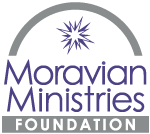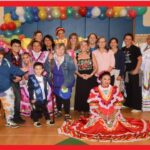
By Lydian Bernhardt Averitt
Rev. Russ Post-May stood on the front porch of the Sunnyside Avenue house known as Anthony’s Plot recently, cell phone in hand, and watched the activity down the street, beyond the band of yellow caution tape roping off the area.
A tragedy had occurred in the night. The space heater that a neighbor was using to fend off the chill of a cool spring had caught papers and furnishings on fire inside his house. The neighbor died in the blaze, which also leveled the house.
Post-May kept an eye on the fire trucks and police cars at the scene, vigilant to neighbors’ needs. He’d been over once, and would go again.
“Years ago, as we were moving in, that neighbor rode by on his bike and said, ‘You won’t last a month.’ He became one of our most faithful friends,” Post-May says thoughtfully. “I officiated at his parents’ funeral. His brother will probably stay here tonight.”
To be a part of the change a community needs, it’s not enough to supply it with services from afar, or drop in every so often with giveaways, or even to open a food distribution center and hand things out, Post-May says. Instead, positive change in a community starts from within – from people who are neighbors and friends intentionally investing in each other.
“How can we build a more just and thriving neighborhood, and do the work of reconciliation? And then, how can we live our faith as disciples?” Post-May says.
“We believe that having lives of abundance comes through being able to name, and show, God’s goodness in the world. In turn, that calls us to be fully present in a place where we can benefit others, and they in turn can benefit us.”
In 2010, Post-May felt the call to establish an “intentional community,” a planned, residential group of people with a common goal, within the diverse Sunnyside neighborhood in southeast Winston-Salem. With a group of friends, he moved into Trinity Moravian Church’s former parsonage and established Anthony’s Plot, a not-for-profit organization comprised of neighbors living inside the house and others out in the neighborhood, seeking to do the work of reconciliation and community-building by becoming a part of one.
Eleven years later, the community’s members may have changed, but their mission for living interdependently with neighbors as part of God’s mosaic is as strong as ever.
Post-May, with his wife Rebecca, daughter Florence and several other friends are full-time residents of the Anthony’s Plot house, with a bedroom always open for anyone who needs a place to stay. Other community members come and go, as do the neighbors involved with the group.
That presence doesn’t always take the form of help in crisis. Sometimes, it takes the form of fun.
“We decided that we should do something for Easter years ago, and so we hosted a dinner the Monday after Easter for the neighborhood. That led to another dinner the next week, and the next. We found out that we really liked eating together. In early 2020, Anthony’s Plot was awarded a grant from the Moravian Ministries Foundation in America’s (MMFA) Hunger & Thirst Field of Interest Fund to help with community meal costs.
“We kept the meals up a long time – COVID, of course, has paused everything. It went from us providing all the food to a few neighbors bringing something, and finally, they brought most of the food – stuff that made me want to put mine back in the kitchen.”
Some of the community’s activities are making a return from COVID’s pause. Most summers, the community runs a branch of the national nonprofit Freedom School, a literacy-based summer enrichment program through the Children’s Defense Fund, and plans for this summer’s school are underway.
Anthony’s Plot’s namesake is Anthony Ulrich, an African man enslaved on a St. Thomas sugar plantation in the 1700s who met Moravians years later in Europe. Shocked by his stories of the inhumane treatment slaves were receiving in the islands, a group of Moravians were inspired to journey to St. Thomas to preach.
Ulrich, however, cautioned that no one would care about the Jesus of people who looked like colonizers; the Moravians must give up their European ways to be one with his family. Only then, Ulrich said, would they want to hear what the Moravians had to say.
“At Anthony’s Plot, we try to live that example of all people coming together to work a transformation in lives, in the neighborhood,” Post-May says. “One of our first friends was a very fervent Muslim, African American man. We didn’t expect him to get along with other friends of ours, a very conservative, Christian, older white couple.
“But one day I was over at the couple’s house and there sat the man at their dining room table. I said, ‘What are you doing?’ And he just smiled and said, ‘Having lunch, what are you doing?’ “
Sometimes the Anthony’s Plot group’s presence takes the form of advocacy: for tax dollars spent on their side of town. For more investment and infrastructure there. For safeguards against “gentrifying” property values driving neighbors out of their homes.
Post-May sees opportunities in these issues and others brought to the forefront by ongoing re-evaluations of racial and class inequality – not just for Anthony’s Plot, but for the Moravian church as a whole.
“Because of our long history in this area, people look to the church for clues as to how we got to this point,” Post-May says. “I’d like to see the Moravian church take the lead in truth-telling and ‘righting’ the history as we’ve always said we wanted to do. I think we’re called to really think about what it means to be a global church that’s primarily Black and brown, and what that implies for our actions.”
In December, some of the neighbors come together to celebrate Las Posadas, a religious event celebrated primarily in Hispanic countries that commemorates Mary and Joseph’s quest to find a room at the inn. In recreating that journey, a group goes door to door, asking if they can come in. As the event unfolds, more and more people join until the group becomes a crowd.
The first year, the police showed up. Apparently, a large group roaming the Sunnyside streets was a curious sight, and they wanted to know what was happening.







